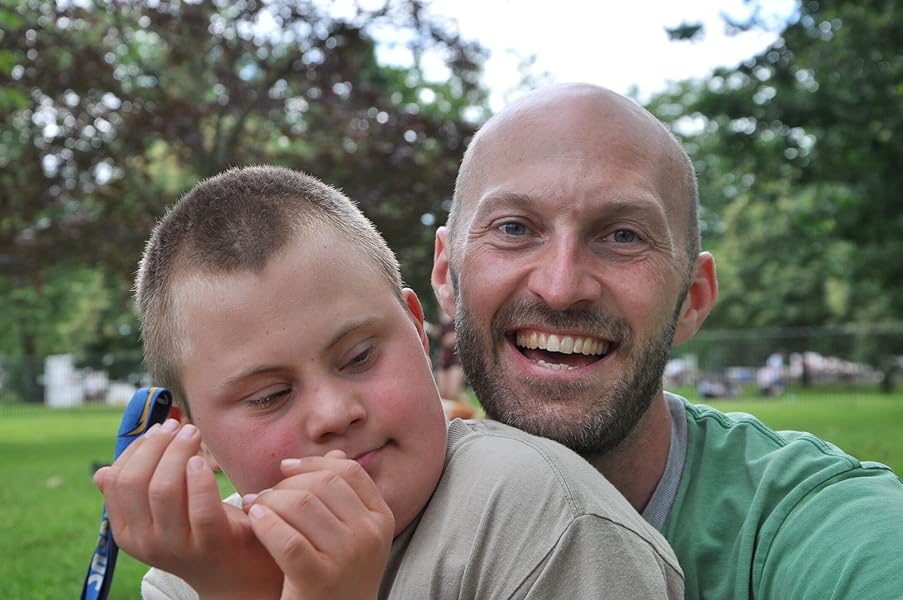Rachel Wooden shares some standout thoughts and moments from a recent disability theology study day at London Diocesan House with Professor Brian Brock
“The most frequent response from ministers and pastors, when I ask about members of their congregations who are disabled is, ‘we don’t have them’ ”…
This comment started our day with Professor Brian Brock, American Theologian and dad to a son with additional needs. Brian joined us from Aberdeen, not the US…but still quite a long journey!
Brock suggested that if our response is ‘we don’t have them’, then it means either that disabled people are missing from our pews (which should make us question what we are doing wrong), or we are simply not seeing disability and impairment right in-front of us (which means that we might need to open our eyes and start asking the right questions). I would add a third reason… we may have many disabled people in our pews who do not feel comfortable disclosing impairment (which could be for many reasons).
If we don’t even ‘see’ disabled people in the first place, we are unlikely to cater well in our churches. We may potentially even create physical and stigmatizing barriers (sometimes without even realising) meaning that disabled people decide not to come to church, to avoid awkward and embarrassing moments.
So, why are we not ‘seeing’?
We often prefer to see life as sanitized. For example, most artwork of the crucifixion shows a clean cross and an immaculate Messiah dying quietly and demurely… but the crucifixion would have been disturbing, with smells and noises and injured bodies that we may not have felt comfortable with. Impairment (like the cross) can bring a dissonance to our church experience…and disabled people may not feel able to be part of or honest with a church that cannot cope with them.
We tend to see only a limited range of impairments (such as wheelchair user, blind or Deaf, autism or learning disabilities), but this is a very narrow view and doesn’t describe true disability experience. Everyone is different and there is incredible diversity. In addition, some people have a sudden experience which can be profoundly identity-unsettling (such as sudden blindness or loss of limb, or the birth of a ‘disabled’ child). Others have been born with impairment and may have a very different life experience. Our imaginations are deeply shaped by our experience of being disabled or non-disabled, and it is dangerous to assume that we already know and understand others.
We like to see people fitting into nice, neat, tidy boxes, but the diversity of disability experience means there is no single answer to theological or pastoral questions, because we all think differently about what ‘wholeness’ looks like. If we want to truly understand what it means to be whole and human, we must integrate disability theology deeply into our church life. It also means that there may be no single practical solution to difficulties encountered… and it may take time and patience to get things right.
We often see disabled people through the lens of the ‘charity model’ approach, continually positioning disabled people as recipients of good works rather than as givers. But we are impoverished if we do so – we might just find ourselves surprised at what disabled people can offer!
To start truly ‘seeing’ means we must ask questions and be prepared to receive honest answers from disabled people. It means being prepared to commit time and energy to ensure there is real belonging and participation, rather than just basic access and inclusion. The end goal is for the shape of our communities to be changed forever… as we model something so beautifully counter-cultural that our churches become places where everyone can be ‘seen’ and be present together.
On a more practical note, it is possible to make some immediate simple changes which can make a huge difference. Such as describing ourselves during introductions, or describing pictures on a screen, to ensure people with visual impairment feel welcomed. Or using more pictures to describe what is happening during services, for those who may not hear or understand all the (many) words we use – such as hands during prayers, bread and wine during communion liturgy, a bible during the reading. Or ensuring that communion is always part of our services, because taking bread and wine allows us all to say ‘yes’ to Jesus in a very practical way – the spoken creeds don’t always allow everyone to respond. Or earmarking a room as a quiet space to cater for those who may have sensory overwhelm, but still want to be part of the service. Or speaking about diversity, mortality, ageing and impairment as a normal part of life. Or being gracious, welcoming and non-demanding to those who do come, because the effort required to attend church might be huge. Or asking for feedback about what people find helpful or not so helpful about church life. I’m going to start asking questions in our own church community and I hope that people will truly be honest with me!
